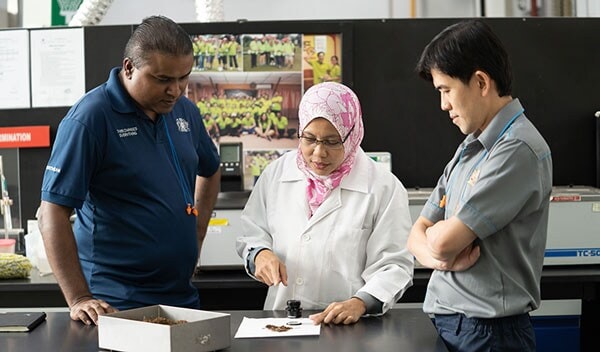-
Sustainability
-
Philip Morris International has set ambitious sustainability targets and have made great progress.
We’re ranked among the top fast-moving consumer goods companies in terms of our environmental footprint, starting from the way we source tobacco leaf to how we manufacture and distribute cigarettes.
Our sustainability efforts touch on every aspect of our value chain—from the farmers who grow tobacco right through to the 150 million consumers who choose our products. -
With our Good Agricultural Practices (GAP), we have put in place regulations and measurable standards that must be met by all who grow and supply tobacco to PMI.
Philip Morris International are committed to the sustainable production of tobacco, in conditions that limit the impact on the environment.
We also aim to improve the socioeconomic well-being of tobacco-farming communities, as well as safeguard fair working conditions, minimize our impact on the ecosystems surrounding farms, and uphold human rights in our supply chain. -
Philip Morris International has ambitious targets to reduce emissions, including a long-term commitment to tackle climate change.
In 2021, PMI announced its Low Carbon Transition Plan, a detail strategy to decarbonize its direct operations by 2025 and across its entire value chain by 2040.
PMI is proud to be recognized as a global leader for our corporate action on climate change. Our company has been on the CDP’s Climate A-List for our comprehensive action to reduce greenhouse gas emissions and mitigate climate change, and for transparency in our reporting practices. -
Philip Morris International is strongly committed to the development and growth of the local communities where we operate or source tobacco.
Our charitable giving and community investments are focused on access to education, economic opportunity, as well as disaster preparedness and relief efforts.
Learn more about how PMI supports these communities through the realization of these programs to the United Nations Sustainable Development Goals. -
Together with the NGO Verité, Philip Morris International have developed a comprehensive approach to addressing child labor wherever we source tobacco.
According to the International Labor Organization, the largest share of child labor occurs in the agricultural sector: Around 108 million children are impacted worldwide, involved in different forms of hazardous work.
In many cases, child labor is often the result of complex challenges stemming from socioeconomic realities and cultural practices.
-

Market
- Argentina
- Brazil
- Canada
- Chile
- Colombia
- Costa Rica
- Dominican Republic
- Ecuador
- Guatemala
- Mexico
- Panama
- Peru
- Venezuela
- Australia
- China
- Georgia
- Hong Kong
- India
- Indonesia
- Japan
- Kazakhstan
- Korea
- Malaysia
- New Zealand
- Pakistan
- Philippines
- Singapore
- Taiwan
- Thailand
- Vietnam






